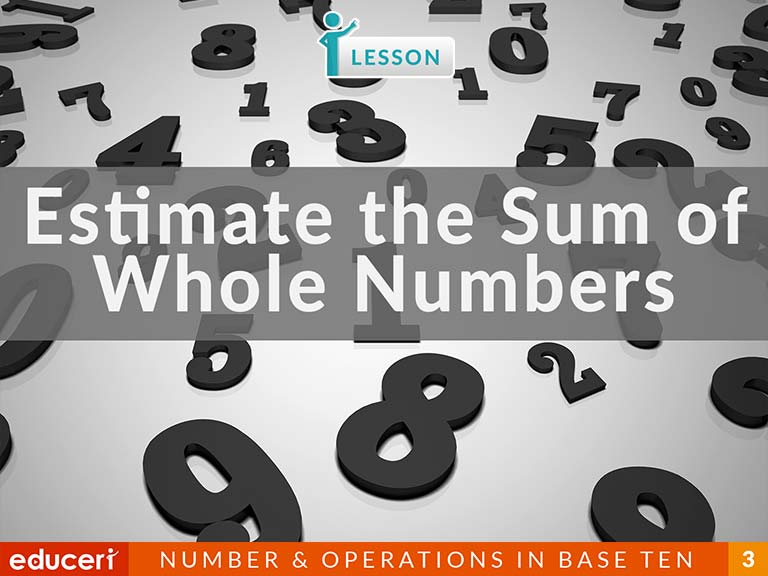
Estimate the Sum of Whole Numbers Lesson Plans
A sum is the total amount calculated by addition of those numbers. The calculation performed is called addition or summation. A sum can be used to simply calculate a total amount such as, counting the number of people on each floor of a building then adding those numbers together to get the total amount of people in the building.

Aristotle Quote “The whole is greater than the sum of its parts.”
Also translated as "The whole is greater than the part," this quote is about how much better things are together than as pieces. The idea is used heavily in Synergy and Gestalt as well as in non-linear fields. It is also used by people looking for something somewhat cryptic to say to sound smart. This quote reminds us that what one can do.

Aristotle Quote “The whole is greater than the sum of its parts.”
Arithmetic Matrix Simultaneous equation Differentiation Integration Limits Solve your math problems using our free math solver with step-by-step solutions. Our math solver supports basic math, pre-algebra, algebra, trigonometry, calculus and more.

Factoring a sum or difference of whole numbers YouTube
The sum total of something is the whole of it, or everything: It's the sum total of what you eat over a long period that matters and not what you consume in a day. SMART Vocabulary: related words and phrases Calculations & calculating algebraic algebraically algo algorithmic amount calculate calculator guesstimate interpolate inverse function
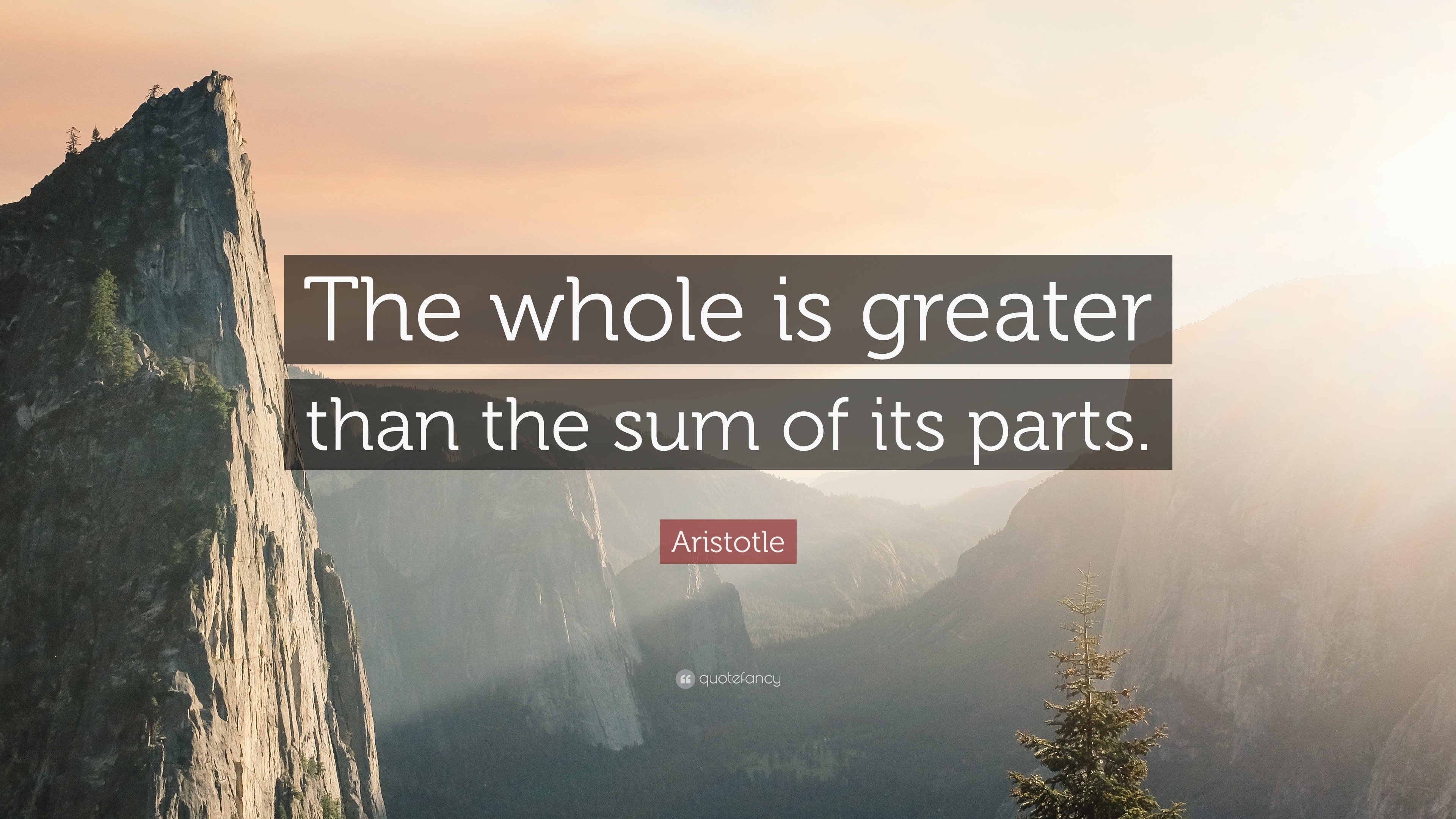
Aristotle Quote “The whole is greater than the sum of its parts.”
To sum an entire column without providing a specific range, you can use the SUM function with a full column reference. In the example shown, the formula in F5 is: = SUM (D:D) The result is the sum of all numbers in column D. As data is added to the table, the formula will continue to return a correct total. Generic formula = SUM (A:A) Explanation

Aristotle Quote “The whole is greater than the sum of its parts.”
Analysis: If the whole and one or more of its parts are known, then the task is to find the remaining part (s) by breaking down the whole, using the known part (s): If the known parts are not equal, we subtract. If the known parts are equal, we divide. Basically, "Each individual part is equal to the whole minus all of the other parts."

The sum of the whole is this walk and be happy; walk and be
The meaning of "the whole is greater than the sum of its parts" is that when one single thing is grouped by a collection of individual parts and properties, it will be fairer, more beautiful, or more perfect than any of the parts would be on their own.

The whole is more than the sum of its parts Aristotle quote Poster by
Free Pre-Algebra, Algebra, Trigonometry, Calculus, Geometry, Statistics and Chemistry calculators step-by-step

Sum Definition, Formula, Examples, Solved Solutions Cuemath
The whole is other than the sum of the parts. —Kurt Koffka. Gestaltism's philosophy is not the same as Aristotle's saying, "the whole is greater than the sum of the parts." In Gestaltism, the whole is different and may even be completely unrelated to its parts. Gestalt Principles. Gestalt Principles are an essential part of visual design.
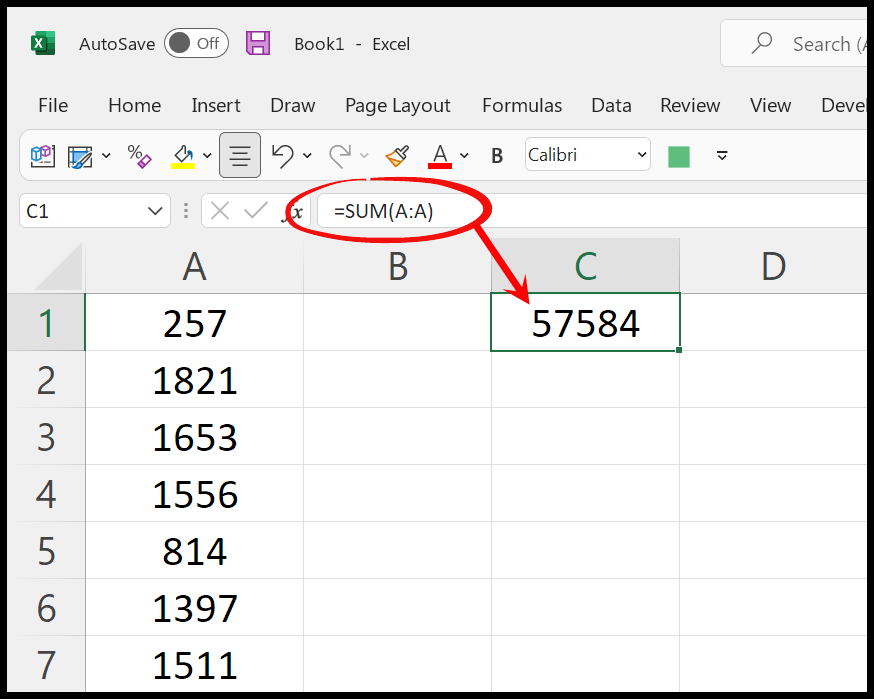
Sum an Entire Column or a Row Excel Formula
In other words, affirming that "the whole is equal to the sum (total) of its parts." Analysis: If the whole and one or more of its parts are known, then the task is to find the remaining part(s) by breaking down the whole, using the known part(s): • If the known parts are not equal, we subtract. • If the known parts are equal, we divide.

Estimating a sum of whole numbers YouTube
In the expression 3 + 4, which shows the sum of two whole numbers, the whole numbers 3 and 4 are called addends or terms. We can use a visual approach to find the sum of 3 and 4. First, construct a number line as shown in Figure 1.2. Figure 1.2: Adding whole numbers on the number line. To add 3 and 4, proceed as follows.

Addition of Whole Numbers with and without Regrouping How to find the
The phrase "The whole is greater than the sum of the parts" is well known and important to Systems Scientists and Systems Engineers alike. It's like a short pithy definition of Emergence. And it is almost always automatically attributed to Aristotle. But what I want to know is this - Did he say it? Why did he say it? And in what context?
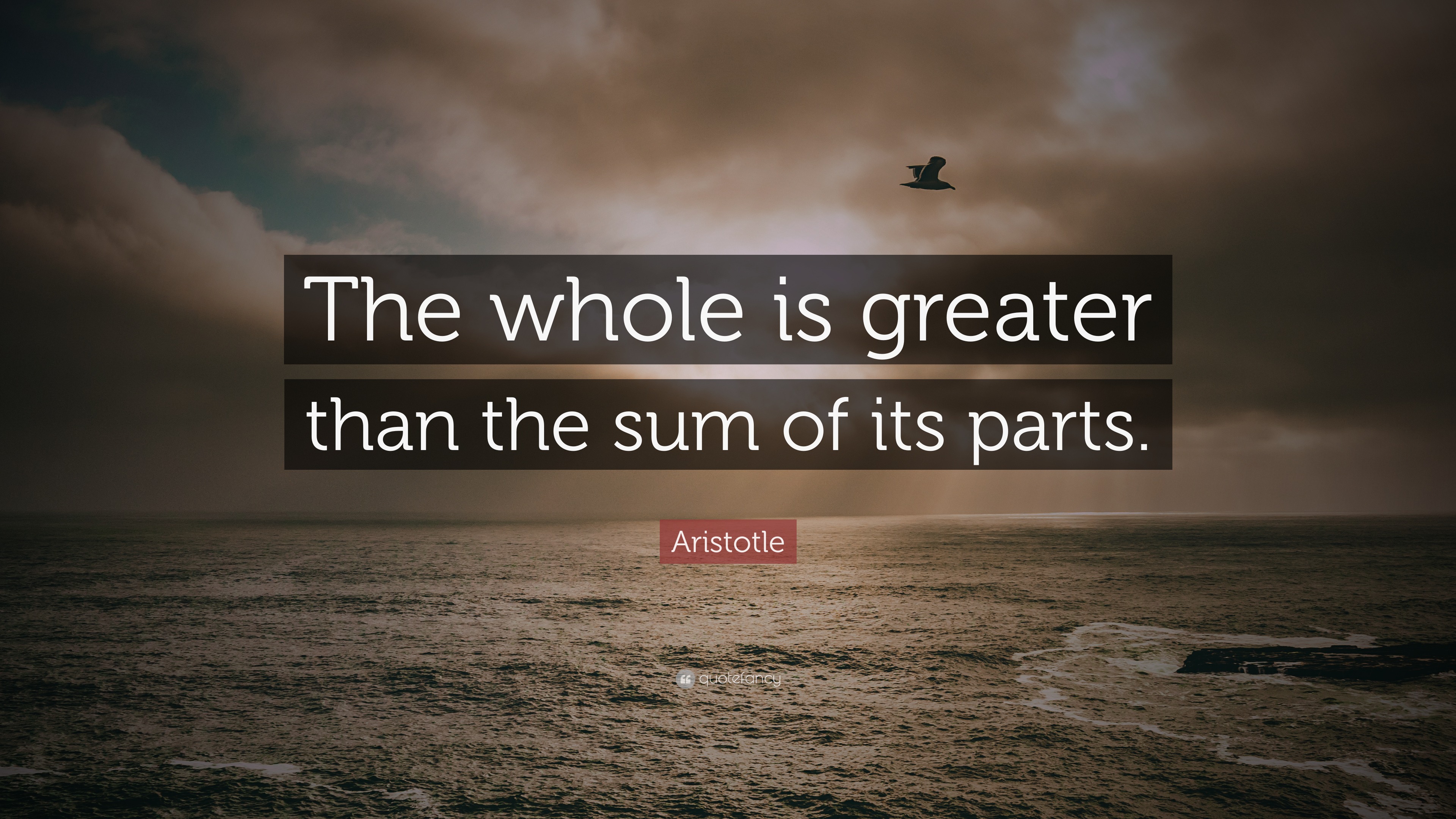
Aristotle Quote “The whole is greater than the sum of its parts.”
See: οὐ ταὐτόν ἐστι τὰ μέρη καὶ τὸ ὅλον (150a15-16). "the whole is not the same as the parts" By τὰ μέρη I mean the parts taken together here, e.g. someone who mistakenly says two people together have justice, because justice is A plus B and one has A and the other B.
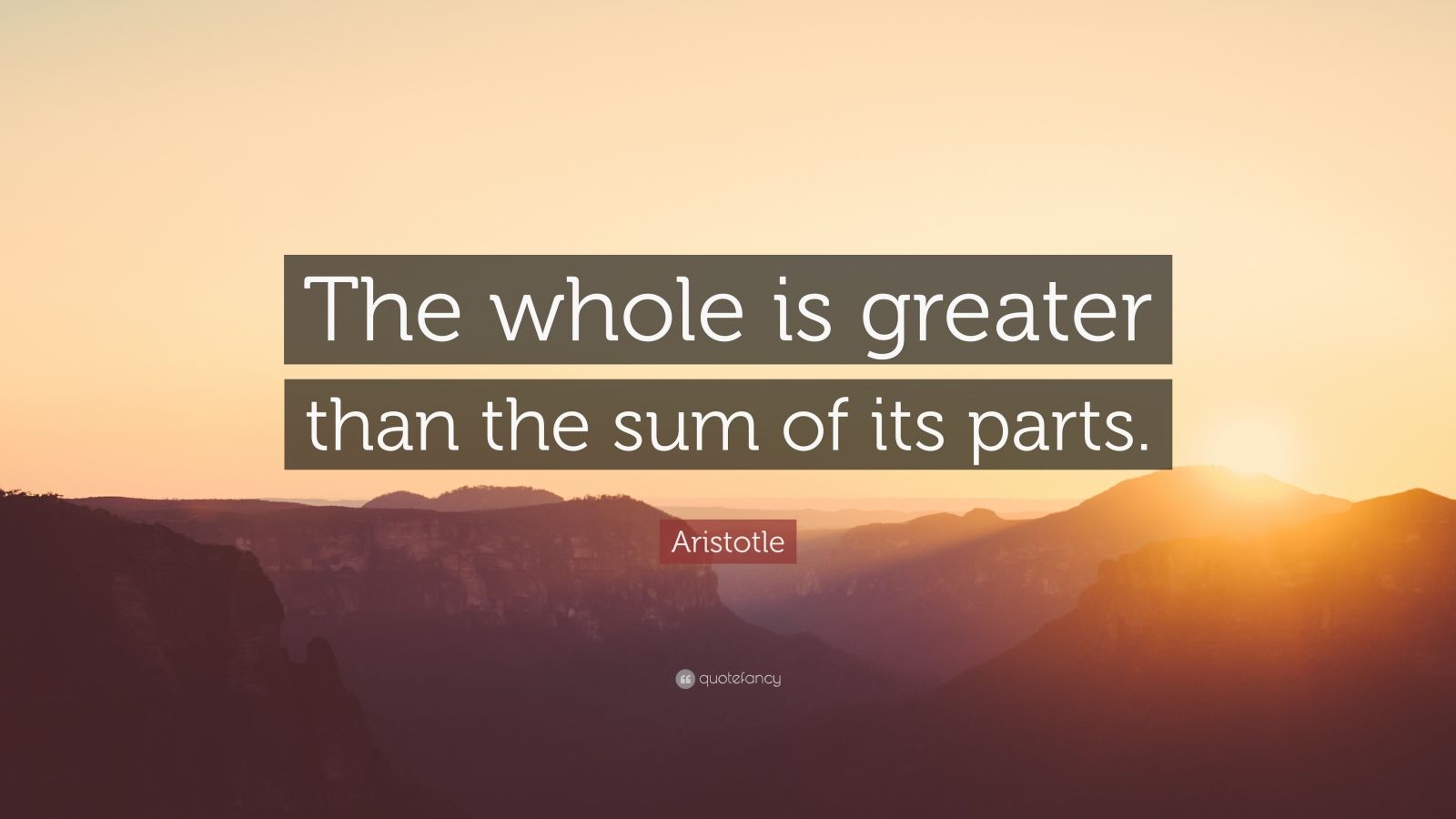
Aristotle Quote “The whole is greater than the sum of its parts.” (12
The original famous phrase of Gestalt psychologist Kurt Koffka, "The whole is other than the sum of the parts" is often incorrectly translated[4] as "The whole is greater than the sum of its parts," and thus used when explaining gestalt theory, and further incorrectly applied to systems theory.[5] Koffka did not like the translation.

Question Video Estimating Decimal Sums and Differences by Rounding to
Sum of parts is the idea that things are more than the collective attributes of their parts. The following are illustrative examples of the sum of parts concept. Aristotle & Euclid Sum of parts originates with Aristotle's Metaphysics which states "the whole is something besides the parts."

Aristotle Quote “The whole is greater than the sum of its parts.”
The sum of all whole numbers 1 to 100 can be calculated using the formula, S= n/2[2a + (n − 1) × d], where n = total number of whole numbers from 1 to 100, d = common difference between the two consecutive terms, and a = first term. Since there are a total of 100 whole numbers, hence n = 100. Thus, a = 1, d = 1 and n = 100.